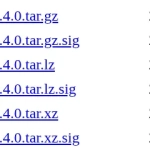Modi Pitches India as an AI Hub at International Summit – Broadband Breakfast
India Emerges as a Global AI Powerhouse: Modi’s Vision at International Summit
In a bold and visionary address at the recent International AI Summit, Indian Prime Minister Narendra Modi positioned India as a burgeoning hub for artificial intelligence, signaling the nation’s readiness to lead the next wave of technological innovation. The summit, which brought together global leaders, tech giants, and policymakers, served as a platform for Modi to articulate India’s ambitious AI roadmap, emphasizing the country’s unique strengths and its commitment to leveraging AI for societal transformation.
Modi’s speech was a masterclass in strategic communication, blending optimism with pragmatism. He highlighted India’s vast pool of tech talent, its robust digital infrastructure, and its thriving startup ecosystem as key enablers for AI growth. “India is not just a participant in the global AI revolution; it is poised to be a leader,” Modi declared, earning applause from the audience. He underscored the government’s initiatives, such as the National AI Strategy and the Digital India campaign, which aim to democratize access to AI technologies and foster innovation across sectors.
The Prime Minister also addressed the ethical dimensions of AI, stressing the importance of responsible development and deployment. “AI must be a force for good, driving inclusivity and sustainability,” he said, calling for global collaboration to address challenges such as bias, privacy, and security. Modi’s emphasis on ethical AI resonated with the summit’s attendees, many of whom are grappling with similar concerns in their own countries.
India’s AI ambitions are not just rhetoric; they are backed by concrete actions. The country has seen a surge in AI-driven startups, with sectors like healthcare, agriculture, and education benefiting from innovative solutions. For instance, AI-powered diagnostic tools are improving healthcare access in rural areas, while precision farming techniques are boosting agricultural productivity. Modi highlighted these success stories as evidence of AI’s transformative potential in addressing India’s unique challenges.
The summit also featured discussions on the role of AI in shaping the future of work. Modi acknowledged the potential for job displacement but framed AI as an opportunity for reskilling and upskilling the workforce. “The future belongs to those who can adapt and innovate,” he said, announcing new initiatives to equip India’s youth with AI skills. This forward-looking approach has positioned India as a model for other developing nations seeking to harness AI for economic growth.
Global tech leaders at the summit praised India’s proactive stance on AI. Sundar Pichai, CEO of Alphabet and Google, lauded India’s “remarkable progress” in AI adoption, while Tesla’s Elon Musk expressed interest in collaborating with Indian startups on AI-driven projects. These endorsements underscore India’s growing influence in the global tech landscape.
Modi’s vision for India as an AI hub is not without challenges. The country faces hurdles such as data privacy concerns, regulatory complexities, and the need for greater investment in research and development. However, the Prime Minister’s address conveyed a sense of determination and confidence, signaling that India is ready to overcome these obstacles and emerge as a global leader in AI.
As the summit concluded, it was clear that Modi’s pitch had struck a chord. India’s AI journey is just beginning, but its potential is immense. With a young, tech-savvy population, a thriving startup ecosystem, and a government committed to innovation, India is well-positioned to shape the future of AI. As Modi aptly put it, “The world is looking at India not just as a market, but as a partner in building a better, smarter future.”
Tags, Viral Words, and Phrases:
AI revolution, India as AI hub, Modi’s vision, National AI Strategy, Digital India, ethical AI, responsible AI, AI-driven startups, healthcare AI, agriculture AI, precision farming, future of work, reskilling, upskilling, global tech leaders, Sundar Pichai, Elon Musk, data privacy, regulatory complexities, research and development, tech-savvy population, startup ecosystem, innovation, societal transformation, global collaboration, AI for good, inclusivity, sustainability, AI skills, economic growth, global influence, tech landscape, better future, smarter future, transformative potential, AI challenges, AI opportunities, AI adoption, AI deployment, AI leadership, AI roadmap, AI democratization, AI technologies, AI solutions, AI tools, AI projects, AI workforce, AI development, AI security, AI bias, AI privacy, AI summit, International AI Summit, AI growth, AI innovation, AI success stories, AI hurdles, AI determination, AI confidence, AI journey, AI potential, AI partner, AI market, AI model, AI progress, AI collaboration, AI ecosystem, AI population, AI government, AI investment, AI research, AI regulatory, AI adoption, AI deployment, AI challenges, AI opportunities, AI solutions, AI tools, AI projects, AI workforce, AI development, AI security, AI bias, AI privacy, AI summit, International AI Summit, AI growth, AI innovation, AI success stories, AI hurdles, AI determination, AI confidence, AI journey, AI potential, AI partner, AI market, AI model, AI progress, AI collaboration, AI ecosystem, AI population, AI government, AI investment, AI research, AI regulatory.
,




Leave a Reply
Want to join the discussion?Feel free to contribute!